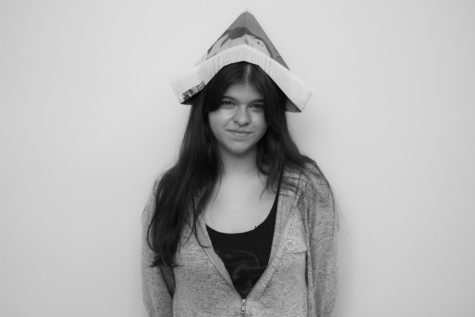Dec. 10 marks the beginning of Hannukah
December 8, 2020
Nine elegant long candles rest on the countertop; segregated from the rest of the box, beside them a match lies, waiting to be used. A mostly ravaged plate of latkes remains on the table. The children are too busy laughing and laughing among skirmishes with their gelt and dreidels on the floor to be bothered to put the dishes in the sink; their parents are upstairs, finishing wrapping presents and gathering the menorah in which the candles will be put to use.. Soon, the house will be flooded with the delicate luminescence these candles provide, as well as the familiar ring of “Barukh ata Adonai Eloheinu” that will forever be ingrained in many minds. This picturesque scene will become a reality for many of Tualatin’s Jewish residents at sundown on Dec. 10, the first night of Hanukkah.
For some, Hanukkah is filled with memories such as the ones above – memories of family, of food, of games, perhaps even of dropping the fully lit menorah on one’s countertop and coming dangerously close to setting one’s kitchen ablaze (I wish I could say this has only happened once). However, for others, besides maybe a lesson on the proper use of a dreidel in grade school, they have almost no experience or knowledge of the actual holiday,
Hanukkah is celebrated on the 25th day of the month Kislev, which is NOT to be confused with Dec. 25. This year, the 25th day of Kislev falls on Dec. 10. The date moves yearly due to the fact that the Jewish calendar which is altered from the calendar Americans use as it is a lunar calendar with leap days that follow different schedules.
The celebration stems from when the Maccabees reclaimed the second Jewish temple in Jerusalem that had been occupied by the Seleucid monarchy, which had outlawed Judaism. The soldiers wished to light a menorah in the temple, but only had enough oil to keep it aflame for a day. However, a miracle occurred when the oil lasted for eight days, giving them enough time to find more oil to keep the menorah ablaze. Hence, Hanukkah is eight days long, and is known as “The Festival of Lights.”
Hanukkah is celebrated differently from household to household, but often traditional fried foods such as latkes (fried potato pancakes) or sufganiyah (round jelly-filled doughnuts) are consumed. Usually some game is played, such as dreidel, where members spin a four-sided top that is marked with whether they have to give up or collect Hanukkah gelt (chocolate wrapped in golden foil to appear as gold coins). A common thread among all celebrations is the lighting of the menorah; for each of the eight nights a prayer is said and a number of candles equivalent to the night (one candle on the first night, two on the second and so on) plus the shamas are lit in celebration of what has been overcome and the miracles that happened because of them.
Hanukkah is a beautiful holiday with thousands of years worth of history behind it, perhaps next time you are at the store and notice some chocolate coins along the checkout counter, grab a few, and indulge in a different culture.

